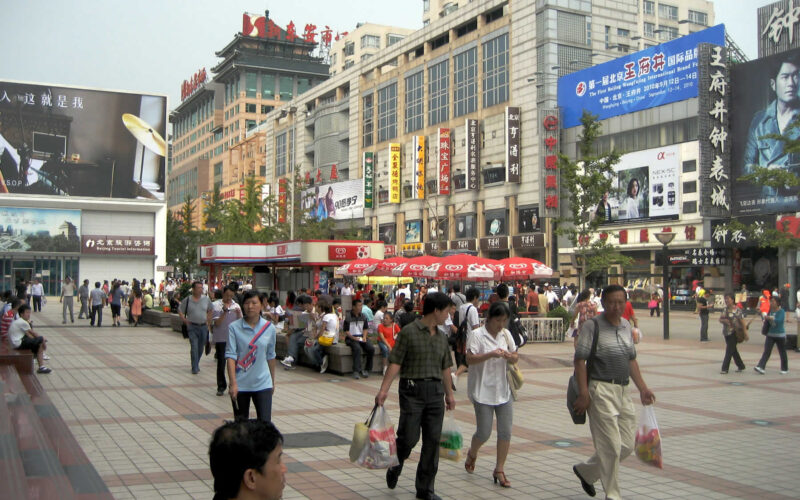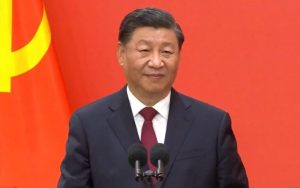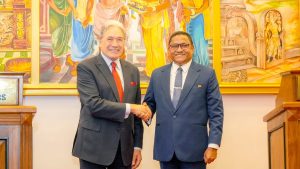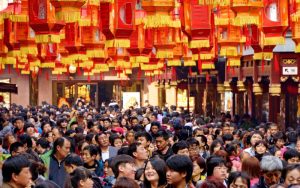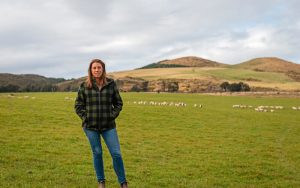
While the English speaking world is the destination of choice for many New Zealanders, Sir David Carter says China should be on more itineraries.
For a country so dependent on primary exports for our prosperity, it is a pity that so many New Zealanders are poorly informed as to our major export market.
For young Kiwis embarking on their OE, they may well choose Australia because it’s close, or Britain where they might trace their heritage or hop the Channel to explore the history and culture of Europe.
The other popular choice will be the United States, where they can marvel at its journey over 250 years to become the world’s most powerful economy.
But there is another choice that should be considered; China. It is after all, New Zealand’s most important export market.
My interest in China was initiated by my daughter heading over there as an 18 year old to teach English.
She arrived without a word of Mandarin, was charmed by the people and the culture, and returned home two years later, a fluent speaker of the Chinese language.
This sparked my interest in this amazing country, and I have read a lot of its history since.
We forget how young this country is, despite its 5000 years of history.
It became the People’s Republic of China in 1949, only 75 years ago.
The journey to this stage, and the turmoil and suffering of the preceding 100 years, is worth recalling.
The Europeans had all made their presence felt in an exploitive way. And when they left, the Japanese arrived. This invasion in 1931 was humiliating and bloody. I have visited a memorial museum in the then capital of Nanjing, where the deaths of over 300,000 men, women and children is factually recorded. It is a numbing experience, sometimes referred to as the Asian Holocaust.
The Chinese finally drove the Japanese out at the end of World War Two, and then embarked on a brutal civil war, waged between the Nationalists led by General Chiang Kai-shek and the Communists led by Mao Zedong.
The Communists won with Chiang Kai-shek fleeing to Taiwan. His legacy lives on with ongoing tension as to the legitimacy of Taiwan’s indendence.
The suffering still wasn’t over for the Chinese people. Mao’s Cultural Revolution followed, which was a period of mixed success.
Some historians estimate that as many as 45 million people died of starvation during this time.
I have sometimes struggled to understand why the current population of China hold Mao in such an exalted position, but it was recently explained to me that he, for the first time ever, made the people believe in themselves as a nation. They could see themselves as a nation with some hope and a future. That sense of pride and accomplishment is very evident today.
The real change in economic fortunes occurred in 1978 when Deng Xiaopeng opened this so-called communist country to market forces and to the world.
The results since will be recorded by history as the greatest economic miracle that the world has ever seen.
In those 46 years, more than 500 million people have been moved from starving peasant status to a middle class income.
It is this sector of the Chinese society that we see arriving as tourists to New Zealand with more than 50 direct flights from China to New Zealand each week.
It is these people that buy our dairy products, our meat, our Kiwifruit, and our wine.
I am not going to suggest that everything is perfect with this country. China sees matters like human rights, the rule of law, and property rights differently to us. But we do ourselves as a nation a disservice when we make little effort to understand the journey of this country over the last 75 years.
By Sir David Carter KNZM, a former speaker of NZ Parliament and a patron of the New Zealand China Friendship Society.
You can now read the most important #news on #eDairyNews #Whatsapp channels!!!
🇺🇸 eDairy News INGLÊS: https://whatsapp.com/channel/0029VaKsjzGDTkJyIN6hcP1K
